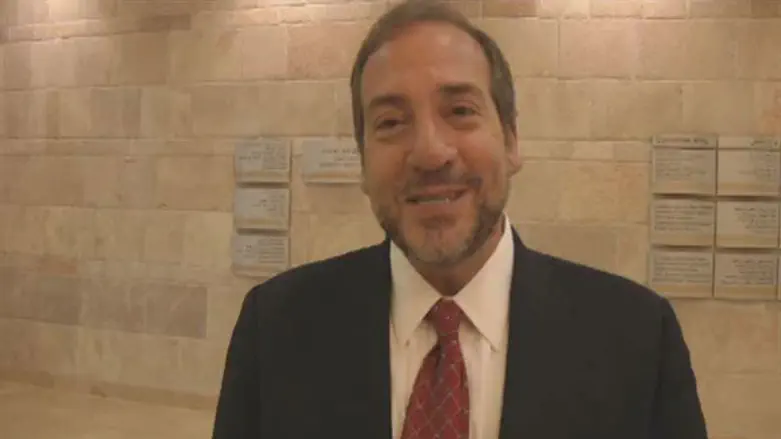
A new global campaign initiated by the International Fellowship of Christians and Jews (IFCJ) and called “We Remember, We Act” is seeking to change how Jews and others commemorate Holocaust Remembrance Day, urging people to move from memory to action to aid the world’s poorest survivors in their final days.
Some 400,000 Holocaust survivors remain alive today around the world, but many are living their final years in abject poverty. One in three Holocaust survivors in the United States, and one-third of Holocaust survivors in Israel live below the poverty line. And at least one fourth of Holocaust survivors in the former Soviet Union (FSU) – about 200,000 people – are subsisting without enough food, medicine, or heat in the winter. These elderly Jews and Holocaust survivors are among the poorest of all, many living in wretched conditions and having to choose daily whether to use their meager pension for electricity or water, medicine or food.
With the approach of Yom HaShoah (Holocaust Remembrance Day) on April 24, the International Fellowship of Christians and Jews (The Fellowship) has launched a campaign urging Jews and Christians everywhere to radically change how they view and mark the day, pivoting from memorializing the Holocaust’s victims, to also acting by providing the living survivors with their basic needs in their final days.
“We must move quickly from memory to action to provide a measure of dignity to these Holocaust victims who are living their last days in crippling poverty,” said The Fellowship’s founder and president, Rabbi Yechiel Eckstein. “We must remember the past. But we also must act now.”
Calling on Christians and Jews to change how they observe Holocaust Remembrance Day, The Fellowship is also launching an annual fundraising campaign to raise $15 million for each of the next five years to help the poorest survivors, in Israel and the FSU.
Business leader and philanthropist Haim Saban announced he is also donating $1 million to the effort. “It is a privilege for me to help these poor, elderly survivors,” said Saban. “I urge others to join us. We must remember – but we must also act now.”
Holocaust Remembrance Day is observed in Jewish communities around the world, with events in schools, synagogues and Jewish institutions. In Israel, sirens herald the national day of mourning and bring the country to a standstill for moments of silence in the morning and evening.
While Israeli Holocaust survivors receive some government subsidies, as well as reparations grants from Germany and Swiss banks, one-fourth of them still report being unable to afford sufficient medicine, medical care, food or home heating fuel in the winter. In the FSU, the situation is much worse with the cost of living rapidly rising in recent years, the economy falling, and no social safety net.
Complicating the survivor crisis is that many of the elderly Jews in the FSU directly experienced the Holocaust, having either fought against or evaded the Nazis on the eastern front – but because they were not in German concentration camps or ghettoes are not considered Holocaust survivors in the strictest sense and, as a result, do not receive aid from the Claims Conference or Swiss banks.
The Fellowship, which raises most of its funds from Christians, provides 110,000 survivors and other poor, elderly Jews in the FSU with $15 million annually in food, medical assistance, home care and winter aid, and more than $7.3 million annually to over 18,000 survivors in Israel.
But The Fellowship says that more than 150,000 other Holocaust survivors and refugees in the FSU are not being reached at all, because of a lack of funds from the American-Jewish community.
“Of course it’s profoundly important that we remember and memorialize the past. But we must also fulfill our moral obligation to the dwindling number of survivors who are living in the most unspeakable poverty,” Eckstein said.
“We must do whatever we can, while we still can, to bring compassion to those who endured one of the most horrific periods in our history. Sadly we are not. Instead of giving tens of millions of dollars for Shoah museums, testimonial libraries and the like, we ought to also focus on helping provide for these desperately poor Jews in the few years they are still alive.”